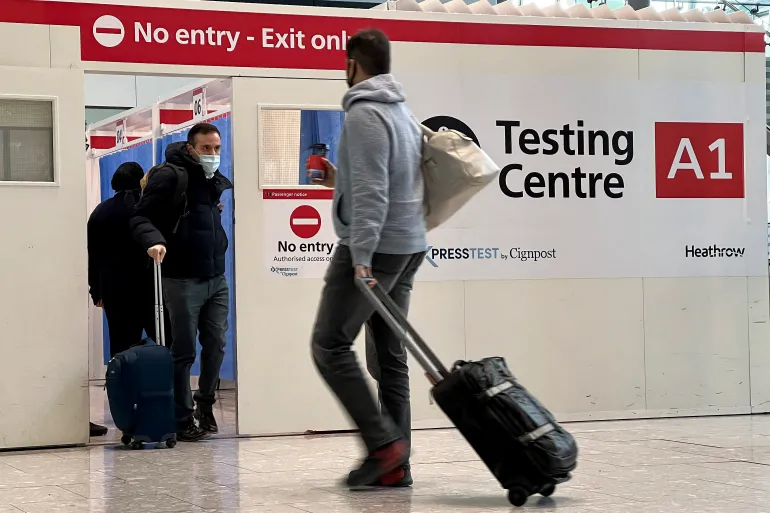Accountability for Refund Delays
In a significant move to protect consumer rights, the US Department of Transportation (DOT) has fined several airlines a total of $2.5 million for delaying refunds to travelers during the COVID-19 pandemic. This action highlights the ongoing efforts to enforce regulations and ensure that airlines adhere to their obligations, particularly during times of crisis. In this blog, we’ll explore the reasons behind the fines on US Flights, the implications for airlines and passengers, and what this means for future air travel.
Reasons Behind the Fines on US Flights: Ensuring Consumer Rights
Firstly, the fines imposed by the DOT are a response to numerous complaints from travelers who experienced significant delays in receiving refunds for flights canceled due to the COVID-19 pandemic. According to federal regulations, airlines are required to provide timely refunds when flights are canceled or significantly changed, regardless of the cause.
During the height of the pandemic, airlines faced unprecedented disruptions, leading to mass cancellations. However, many travelers reported difficulties in obtaining refunds, with some waiting months for their money. The DOT’s investigation revealed that several airlines failed to comply with refund policies, leading to the imposition of fines.
The primary reasons for the fines include:
- Failure to Process Refunds Promptly:
- Airlines delayed processing refunds, causing financial stress for travelers.
- Lack of Communication:
- Airlines did not adequately communicate with passengers about the status of their refunds.
- Regulatory Non-Compliance:
- Airlines violated federal regulations that mandate prompt refunds for canceled flights.
Impacted Airlines: Which US Flights Was Fined?
Several airlines were found to be in violation of refund policies, leading to the $2.5 million in fines. While the DOT did not disclose the names of all the airlines involved, it highlighted that both major carriers and smaller operators were included. The fines serve as a reminder that all airlines, regardless of size, must adhere to consumer protection regulations.
Implications for Airlines: Financial and Reputational Costs
The fines have several implications for the airlines involved:
Financial Penalty:
The immediate impact is the financial cost of the fines. For airlines already struggling with reduced revenue due to the pandemic, this adds an additional financial burden.
Reputational Damage:
Delays in processing refunds and the resulting fines can harm an airline’s reputation. Travelers may choose alternative carriers in the future, impacting the airline’s market share.
Operational Changes:
Airlines may need to review and improve their refund processing systems to ensure compliance with regulations and avoid future fines. This might involve investing in better customer service infrastructure and training staff to handle refund requests more efficiently.
Implications for Travelers: Enhanced Protections and Awareness
For travelers, the DOT’s actions have several positive implications:
Strengthened Protections:
The fines underscore the importance of consumer rights and the DOT’s commitment to enforcing regulations. Travelers can feel more confident that their rights are protected and that airlines are held accountable.
Increased Awareness:
The situation highlights the importance of being aware of one’s rights when it comes to air travel. Travelers should know that they are entitled to refunds for canceled flights and should not hesitate to file complaints if they face undue delays.
Encouraged Vigilance:
With the DOT taking a firm stand, airlines are likely to be more vigilant in processing refunds promptly, benefiting travelers in the long run.

Future Considerations: The Path Forward of US Flights
As the airline industry continues to recover from the impacts of the COVID-19 pandemic, there are several considerations for both airlines and regulators:
Improved Customer Service: Airlines need to prioritize customer service, particularly in handling refunds and cancellations. Implementing efficient processes and transparent communication can help rebuild trust with travelers.
Regulatory Compliance: Airlines must ensure strict adherence to federal regulations. Regular audits and compliance checks can help avoid future penalties and enhance operational integrity.
Traveler Education: Regulatory bodies and consumer protection agencies should continue to educate travelers about their rights. Providing clear information about refund policies and the complaint process can empower travelers to advocate for themselves.
Policy Updates: The DOT may consider updating and clarifying refund policies to address any ambiguities exposed by the pandemic. Ensuring that regulations are clear and enforceable is crucial for protecting consumer rights.
A Win for Consumer Rights
The $2.5 million fines imposed by the US Department of Transportation on airlines for delaying COVID-19 refunds mark a significant victory for consumer rights. This action sends a clear message that airlines must adhere to regulations and prioritize the needs of travelers, even during challenging times.
As the industry moves forward, the focus should be on improving customer service, ensuring regulatory compliance, and fostering transparency. For travelers, this development reinforces the importance of understanding their rights and advocating for fair treatment. Ultimately, the goal is to create a more reliable and responsive air travel experience for everyone.
Inspired by Al-Jazeera News and Rear More Articles Here. or Read Previous Articles Here.
